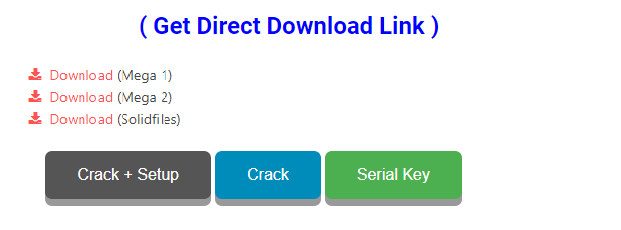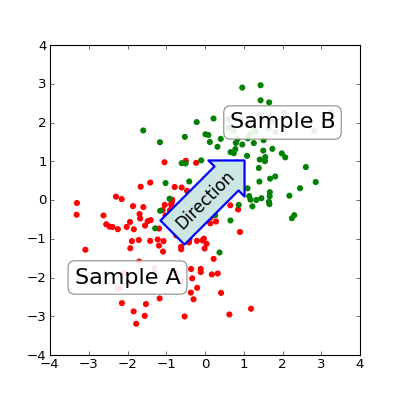Annotate 2 1

To summarize how you will annotate text: 1. Identify the BIG IDEA 2. Underline topic sentences or main ideas 3. Connect ideas with arrows 4. Ask questions 5. Add personal notes 6. Define technical words. Like many skills, annotating takes practice. Remember that the main goal for doing this is to give you a strategy for reading text that may be. Annotate is a cloud based HTML5 web app that transforms your iPad, Chromebook, smartphone, or mobile device into a powerful engagement, assessment, and participation tool. Teach completely untethered. Turn your mobile device into an interactive whiteboard. Freely walk around, remotely control your computer, and wirelessly present and annotate.
| Latest Update | Current Stable Release | Next Release Candidate | Beta Release | Alpha Release |
|---|---|---|---|---|
| July 22, 2020 | 1.1.0 | - | - | 1.2.0-alpha01 |
Declaring dependencies
To add a dependency on Annotation, you must add the Google Maven repository to yourproject. Read Google's Maven repositoryfor more information.
Add the dependencies for the artifacts you need in the build.gradle file foryour app or module:
For more information about dependencies, see Add build dependencies.
Feedback
Your feedback helps make Jetpack better. Let us know if you discover new issues or haveideas for improving this library. Please take a look at theexisting issuesin this library before you create a new one. You can add your vote to an existing issue byclicking the star button.
See the Issue Tracker documentationfor more information.
Version 1.2.0
Version 1.2.0-alpha01
May 14, 2020
androidx.annotation:annotation:1.2.0-alpha01 is released. Version 1.2.0-alpha01 contains these commits.
New Features
- Added
@ChecksSdkIntAtLeast annotation. This let’s androidx and users annotate methods and fields that represent anSDK_INT check.(I89a54, b/120255046)
Annotation-Experimental Version 1.1.0
Annotation-Experimental Version 1.1.0-alpha01
July 22, 2020
androidx.annotation:annotation-experimental:1.1.0-alpha01 is released. Version 1.1.0-alpha01 contains these commits.
New Features
- Experimental annotation library is now written in Kotlin, but does not require the Kotlin standard library to be included as a dependency. It includes a Proguard file that allows unnecessary Kotlin metadata to be stripped from projects that only use the Java programming language.
@UseExperimental now supports multiple marker classes (aosp/1185577, b/145137892)
Annotation-Experimental Version 1.0.0
Annotation-Experimental Version 1.0.0
November 7, 2019
Annotation 212 G 2 B
androidx.annotation:annotation-experimental:1.0.0 and androidx.annotation:annotation-experimental-lint:1.0.0 is released with no changes since 1.0.0-rc01. Version 1.0.0 contains these commits.
Major features of 1.0.0
- Lint-based enforcement of Kotlin
@Experimental semantics in Java source code - Java annotations that provide equivalent behavior to Kotlin’s
@Experimental and@UseExperimental annotations without the need for a dependency on Kotlin
Annotation-Experimental Version 1.0.0-rc01
October 23, 2019
androidx.annotation:annotation-experimental:1.0.0-rc01 and androidx.annotation:annotation-experimental-lint:1.0.0-rc01 are released. Version 1.0.0-rc01 contains these commits.
Known issues
When using Studio 3.5 stable, warnings from the @Experimental usage lint detector are not displayed in the IDE for invalid Java usages of Kotlin @Experimental annotation. See b/140640322.
Annotation-Experimental Version 1.0.0-beta01
October 9, 2019
androidx.annotation:annotation-experimental:1.0.0-beta01 and androidx.annotation:annotation-experimental-lint:1.0.0-beta01 are released with no changes since version 1.0.0-alpha01. Version 1.0.0-beta01 contains these commits.
Annotation-Experimental Version 1.0.0-alpha01
Annotate 2 123
September 18, 2019
androidx.annotation:annotation-experimental:1.0.0-alpha01 and androidx.annotation:annotation-experimental-lint:1.0.0-alpha01 are released. These are the commits included in annotation-experimental 1.0.0-alpha01 and these are the commits included in annotation-experimental-lint 1.0.0-alpha01
New features
The Jetpack Experimental annotation library provides a Java-compatible implementation of Kotlin’s experimental API markers. The
-lint artifact provides a Lint-based implementation of experimental usage restrictions and enforces restrictions on Java usages of Kotlin’s native experimental API markers.When using the
annotation-experimental artifact as a dependency, the Lint rules provided by theannotation-experimental-lint artifact will be enforced automatically.
Version 1.1.0
Version 1.1.0
June 5, 2019
androidx.annotation:annotation:1.1.0 is released with no changes from 1.1.0-rc01.
Version 1.1.0-rc01
May 7, 2019
androidx.annotation:annotation:1.1.0-rc01 is released with no changes from 1.1.0-beta01. The commits included in this version can be found here.

Version 1.1.0-beta01
April 3rd, 2019
Annotate 2 123movies
androidx.annotation:annotation:1.1.0-beta01 is released. The commits included in this version can be found here.
New features
- New
@InspectablePropertyannotation to support the new view inspection APIs added in Android 10. This annotation can be applied to getters on views or other UI elements. Code generation tools may use it to create companion objects that map property names and attribute IDs to property values without the overhead of reflection.
API changes
- Breaking change:
@ContentView has been changed to a constructor annotation and the@LayoutRes value has been removed. Classes wishing to support@ContentView annotations should add this annotation to a constructor that takes a@LayoutRes int parameter. This fixes an issue when using this annotation in library modules. (b/128352521)
Version 1.1.0-alpha02
March 13, 2019
androidx.annotation:annotation:1.1.0-alpha02 is released. The full list of commits includedin this version can be found here.
New features
Annotate 2 100
- New API restriction scope:
RestrictTo.Scope.LIBRARY_GROUP_PREFIX. Itrestricts usage to code within packages whose groups share the same librarygroup prefix up to the last. (period). For example, because librariesfoo.bar:lib1 andfoo.baz:lib2 share the prefixfoo, they can use each other's APIsthat are restricted to this scope. Similarly, forcom.foo.bar:lib1 andcom.foo.baz:lib2 share thecom.foo. prefix and can share APIs restricted tothat scope. Librarycom.bar.qux:lib3 however will not be able to use therestricted API because it only shares the prefixcom. and not all the wayuntil the last. (period).
Version 1.1.0-alpha01
January 30, 2019 Tipard dvd creator 3 2 105.
androidx.annotation:annotation 1.1.0-alpha01 is released.
New features Powerpoint templates education.
- Added a
@ContentView annotation that allows you to indicate which layout XML file should be inflated. This is supported inComponentActivity in its1.0.0-alpha04 andFragment in its1.1.0-alpha04 release as an alternative to usingsetContentView() or overridingonCreateView(), respectively. (aosp/837619)
Version 1.0.2
Version 1.0.2
Blue streak software download for pc. Capto 1 2 16 bit. February 25, 2019
Annotate 2 1st
androidx.annotation:annotation 1.0.2 is released.
Bug fixes
- Correct the R8/ProGuard rules which are embedded in the jar. These were incorrectly referencing the old
android.support.annotation types instead ofandroidx.annotation. Note: This would have only had an impact on your builds if you were not usinggetDefaultProguardFile as those default rules also included correct rules for both packages. (aosp/891685) - Add a R8/ProGuard rule which explicitly keeps the @Keep annotation itself. This ensures that ProGuard does not remove the annotation from types prior to actually honoring its semantics. Note: This would have only had an impact on your builds if you were not using
getDefaultProguardFile as those default rules also included correct rules for both packages. (aosp/903818)

Annotate 2 1
UNDER MAINTENANCE